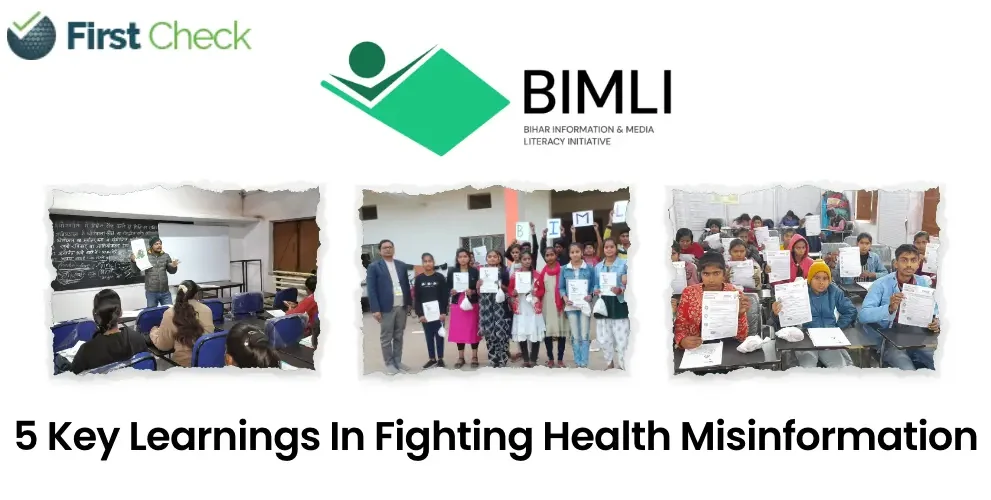The Bihar Information and Media Literacy Initiative, conducted in partnership with JEEViKA and DataLEADS, shows how media training programmes can empower young adults to navigate the digital world responsibly.
How can we equip youngsters with skills to discern and counter health misinformation? The Bihar Information and Media Literacy Initiative (BIMLI), conducted in partnership with JEEViKA (Bihar Rural Livelihoods Promotion Society) and DataLEADS, the parent organisation of First Check, looked for answers to this pertinent question.
Researchers assessed whether inoculating against inaccurate health information through a grassroots training programme can be effective in addressing the beliefs and behaviours that stem from inaccurate health information among secondary school students in Bihar, a state in East India.
As a primary team member working on this research project, here are some of the key learnings I gathered from the unique, on-field experience:
- Keep it engaging: BIMLI used innovative strategies such as peer-led activities and homework assignments in which students had to observe and talk with their adult family members. This showed us that engaging and accessible educational approaches are quite effective in promoting health literacy.
- Be aware of cultural and social factors: Interventions need to be context-specific and take into account the cultural and social factors influencing health behaviours. By incorporating local perspectives and involving community stakeholders, we saw that the interventions can be tailored more effectively, thus enhancing their relevance and impact.
- Adopt an empathetic approach: When it comes to health education, we need to be sensitive and empathetic to foster meaningful change in people’s behaviours and beliefs. We cannot be outrightly dismissive of local practices and traditional cures. For example, the adolescents in Bihar believed that chicken pox (they referred to it as ‘Mata’, meaning mother) occurs when the mother goddess gets angry. The only cure is to make the mother goddess happy.
- Ensure easy access to credible information: Students from rural backgrounds had little access to reliable sources of health information, such as qualified healthcare practitioners and hospitals. In such a scenario, the chances of people falling for health misinformation are higher. They find it easier to get information from social media rather than credible sources of information.
- Encourage critical thinking: Information overload is another critical issue that youngsters as well as doctors have to deal with. When they are bombarded with multiple videos on social media or anecdotes from people close to them, there is a strong tendency to trust misleading health claims. Sometimes, it is so overwhelming that they reject all of the information, including scientifically sound advice. That’s why it’s important to teach critical thinking skills at a young age.
Our experience of working with the BIMLI project demonstrated that even though adolescents are highly vulnerable to misinformation, they are quick learners too. Students picked up the critical thinking skills and soon started questioning the unscientific beliefs and practices they observed in their surroundings.
The interest of students, particularly young girls, in media literacy was inspiring. They acknowledged the importance of media literacy in today’s world and even questioned why it is missing from the school curriculum. With the right literacy programmes, we can empower young adults to navigate the digital world responsibly. The vaccine of media literacy can strengthen our fight against the misinformation virus.
Read More : Lessons in fighting health misinformation from Nigeria


